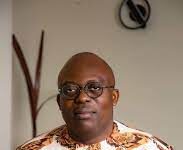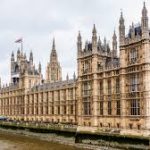BY TUNJI AJIBDE
I made some categorical statements before the last political party primaries. It’s fair to readers that I explain my reasons for making them, and more purposely to minimize the unreal sentiments with which we treat many political matters. For instance, I stated that the observations I made in conversations regarding some presidential aspirants before the 2018 party primaries would reoccur in the 2022 selection processes. This was purely based on observation of basic indicators. I explained some of these indicators in the last four pieces on this page. Here, I round off the series by pointing out the realities when the discourse is specifically about a Nigerian president ‘anointing’ a successor.
First, the reader needs to note that Nigeria is unlike most African countries where one leader can sit forever and die in office whenever he likes. No leader can go it alone in this multi-ethnic, multi-religious nation with its uncountable vociferous elements. Even the cleverest of past military rulers here admitted this much. Foreign diplomats too say when it comes to Nigeria, identifying one person and believing such can singlehandedly get things done for them is never as easy as may be applicable in other African countries.
When one military leader annulled a free and fair election in 1993, tough resistance ensured he didn’t wait to reap the benefit of his effort. When another military ruler decided he wanted to become a civilian president he didn’t live to become one. When a civilian president decided to have a third term in office in 2007, Nigerians stood up against him. Is that the same country in which some believe a president can singlehandedly anoint them and they will become the next president? They must be reading the wrong indicators in our political history. By closely observing relevant political indicators, linking, ranking, as well using them one can make some broad predictive statements. As I’ve stated, I made such statements before the 2022 party primaries, and the details were what I offered in my last four pieces. Now, I ask: Can a Nigerian president singlehandedly anoint a successor? Contrary to what some believed, I didn’t see how it would have worked in the 2022 primary, especially that of the APC, without a full scale rebellion breaking out. I shall explain.
One period that presented opportunity for a leader to anoint a successor was 1979 when General Olusegun Obasanjo was the military Head of State. He wanted a northerner to succeed him. As for who the northerner would be, he didn’t take the decision. Politicians took it in their meetings that featured the usual political horse-trading. We understood that Shehu Shagari was a last minute consensus choice. Obasanjo handed over to Shagari who was widely acceptable in a north that considered it its turn to produce the president. There was another opportunity to anoint in 1998. The Head of State, Gen. Abdulsalami Abubakar, could have anointed the person who was to succeed him. But other political stakeholders did. He handed over to Obasanjo who the stakeholders said they trusted. There was 2007 as well when some believed Obasanjo anointed his successor. But did he do it singlehandedly?
Here, I provide some context before I proceed. In politics some factors project a leader as powerful, and an authoritarian style isn’t necessarily one of them. A powerful and influential civilian leader that’s considered a bulldozer as Obasanjo is generally regarded, is often one who knows how to use force of personality, especially, to persuasively get others to queue up behind his wishes. But he’s also clever enough to appropriate the wishes of followers as his and project it. The leader who does this well comes across to the public as a political enigma. He appears to always have his own way, but within the party and government structures he carries others along relatively well. The image of a leader who always has his way is sometimes deliberately cultivated by smart politicians. But they’re careful to not do anything alone.
In 2007, Obasanjo wanted to hand over to a northerner; note that this was the popular mood at the time. He didn’t just point and select a northerner. Rather, he set up a small committee. One member was Mallam Nasir El-Rufai who was then the Minister of the FCT. The committee looked at the integrity, honesty, and the performance of the northern state governors and selected Umar Yardua, governor of Katsina State. Note also that like Shagari, Yardua was acceptable to the northern political establishment for obvious reasons. Obasanjo personally and zealously promoted the candidature of Yardua and thus the myth arose that he singlehandedly anointed his successor. But Obasanjo ‘anointed’ a northerner whose candidature wouldn’t lead to open rebellion within the party and among northerners.
Some imagine that the situation at the state level where governors, sometimes with impunity, anoint successors applies at the centre. But the dynamics at the state level is different from the centre. State governors have almost absolute control of party and government structure in their states. Many governors appoint local government administrators. They sometimes control all of the funds allocated to LGAs from the federal treasury. Governors find it easier to control the party structure at the state, LGA, and ward levels. When they anoint a candidate therefore, all party officials fall in line, and in fact they all grovel to be the anointed. Has anyone noticed that those who oppose a state governor often live in exile in Abuja until that particular governor is out of office? Meanwhile, most of President Muhammadu Buhari’s vociferous critics dwell in Abuja with him.
Now, a president doesn’t have control over governors as much as governors have over party officials in their states. Governors are elaborately protected in the constitution, so a president’s punitive power over them is limited. But he can always single out a governor and punish. When governors band together on an issue as they sometimes do under the banner of Governors’ Forum or in their geo-political zones, it’s politically expedient that a president obliges them. For instance, south-west governors came together over Amotekun security outfit and the president listened to them. In 2022, APC governors from the north came together and said the presidency should go to the south in 2023, effectively indicating they wouldn’t support Buhari’s anointed, Ahmad Lawan the senate president. The president’s anointed didn’t come from the part of the country where the national mood suggested a successor should come from, so it didn’t work. In fact, as soon as the national chairman of APC, Senator Abdullahi Adamu, mentioned Lawan’s name, northern APC governors descended on his residence as a group to present a resistant united front. All of that happened and APC northern governors are still in their seats. Did this project presidents who could singlehandedly anoint successors without the cooperation of other relevant stakeholders?
More generally a Nigerian president has more diversity, more diverse forces across the nation to contend with when it comes to anointing a successor. As for governors, they often contend with the agitations of mainly three senatorial districts in their states; they have about three major ethnic groups to pacify in the process of anointing a successor. A president on the other hand has the grumbling of over 300 ethnic groups to listen to. Also, a president who’s about to leave office would get less cooperation from state governors. More than that, had Buhari forced through a successor, one who wasn’t acceptable to other party stakeholders, he knew there would have been an internal backlash. Stakeholders could band together and work against the party if his choice fundamentally threatened their interest. In the event Buhari allowed stakeholders to select the party standard-bearer and there’s since been peace within APC.
Against this backdrop, can a Nigerian president singlehandedly anoint a successor? Can a president, without repercussions, anoint a person who’s not relatively acceptable within the party structure, someone that the political mood in the country doesn’t favour as it favoured Yardua in 2007? It was obvious the dream that, without being broadly acceptable to other relevant stakeholders, the president could singlehandedly make them the party standard-bearer spurred some presidential aspirants under the APC flag in 2022. It turned out that their dream was just dream, didn’t it?
The PUNCH
tunjioa@yahoo.com











